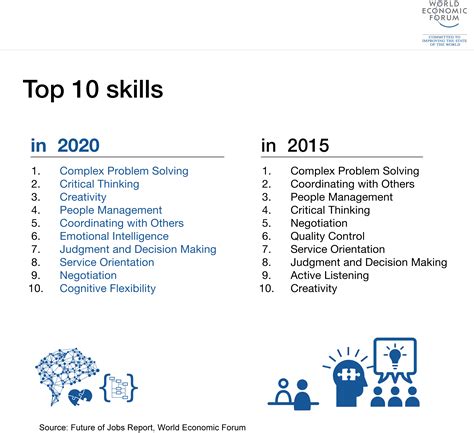Valuable Decision-Making Skills Employers Value

As the world becomes increasingly complex and fast-paced, decision-making skills have become one of the most important traits that employers look for in their employees. Being able to make sound decisions in a timely manner can have a significant impact on the success of an organization. In this post, we will explore the valuable decision-making skills that employers value, and how you can develop them.
1. Critical Thinking
Critical thinking is the ability to analyze and evaluate information to make a sound decision. This skill involves looking at a problem from different angles, considering all possible solutions, and choosing the best one based on logic and evidence. Critical thinking requires an open mind, curiosity, and a willingness to challenge assumptions.
2. Problem-Solving
Problem-solving is the ability to identify and solve problems in a timely and effective manner. This skill involves breaking down complex problems into smaller, more manageable ones, and then developing and implementing solutions. Problem-solving requires creativity, flexibility, and the ability to think outside the box.
3. Data Analysis
Data analysis is the ability to gather, interpret, and use data to inform decision-making. This skill involves identifying relevant data sources, analyzing data to identify patterns and trends, and using this information to make informed decisions. Data analysis requires strong analytical skills, attention to detail, and the ability to interpret complex information.
4. Risk Management
Risk management is the ability to identify, assess, and manage risk in decision-making. This skill involves weighing the potential risks and benefits of different options, and then choosing the option with the lowest risk and highest potential reward. Risk management requires a strong understanding of the potential risks involved in a decision, as well as the ability to make decisions under pressure.
5. Emotional Intelligence
Emotional intelligence is the ability to understand and manage one’s own emotions, as well as the emotions of others. This skill involves being able to recognize and regulate emotions, communicate effectively, and build strong relationships. Emotional intelligence requires empathy, self-awareness, and the ability to handle difficult situations with tact and diplomacy.
6. Time Management
Time management is the ability to prioritize tasks and manage time effectively to meet deadlines and achieve goals. This skill involves being able to identify and prioritize tasks, set realistic deadlines, and delegate tasks when necessary. Time management requires strong organizational skills, the ability to multitask, and a focus on achieving goals.
7. Communication
Communication is the ability to convey information clearly and effectively to others. This skill involves being able to listen actively, ask questions, and express ideas and opinions clearly. Communication requires strong verbal and written communication skills, as well as the ability to adapt communication style to different situations.
8. Leadership
Leadership is the ability to inspire and motivate others to achieve a common goal. This skill involves setting a vision, communicating it effectively, and then leading by example. Leadership requires strong communication skills, the ability to motivate and inspire others, and the ability to make tough decisions.
9. Adaptability
Adaptability is the ability to adjust to new situations and changing circumstances. This skill involves being able to think on your feet, remain calm under pressure, and adapt to new challenges as they arise. Adaptability requires flexibility, creativity, and the ability to learn quickly.
10. Strategic Thinking
Strategic thinking is the ability to think ahead and plan for the future. This skill involves being able to identify potential opportunities and threats, and then develop a plan to achieve long-term goals. Strategic thinking requires a strong understanding of the industry and market, as well as the ability to anticipate future trends and changes.
Conclusion
The ability to make sound decisions is crucial in today’s fast-paced and complex business world. Employers value employees who possess valuable decision-making skills such as critical thinking, problem-solving, data analysis, risk management, emotional intelligence, time management, communication, leadership, adaptability, and strategic thinking. By developing these skills, you can become a more valuable asset to your organization and achieve greater success in your career.
Frequently Asked Questions
- What is the most important decision-making skill? While all decision-making skills are valuable, critical thinking is often considered the most important because it forms the foundation for effective decision-making.
- How can I improve my decision-making skills? You can improve your decision-making skills by practicing critical thinking, problem-solving, and data analysis, as well as by seeking feedback and learning from your mistakes.
- What are the consequences of poor decision-making? Poor decision-making can lead to a range of negative consequences, including missed opportunities, wasted resources, damaged relationships, and decreased productivity.
- How can I demonstrate my decision-making skills to employers? You can demonstrate your decision-making skills to employers by providing examples of times when you made effective decisions based on sound reasoning and evidence.
- What is the role of intuition in decision-making? Intuition can play a role in decision-making by providing a gut feeling or instinct about a particular situation. However, it should be used in conjunction with critical thinking and analysis to ensure that decisions are based on sound reasoning and evidence.
